2-Day-Psychopharmacology Certificate Course for Mental Health Clinicians – Susan Marie
Original price was: $439.99.$132.00Current price is: $132.00.
2-Day-Psychopharmacology Certificate Course for Mental Health Clinicians – Susan Marie Download. They need someone who can not only effectively communicate…
Salepage link: At HERE. Archive:
Clients taking psychotropic medications need an advocate who can help them make sense of the whirlwind of information regarding what drugs are good for what conditions, potentially dangerous side effects and adverse reactions, and possible alternative treatments.
They need someone who can not only effectively communicate vital information to them but can also collaborate with prescribers to determine the best course of action to take.
Simply put, these clients need you, and so you need this current and comprehensive training in psychopharmacology.
As a licensed psychiatric nurse practitioner with full independent prescriptive practice, Susan Marie, PHD, PMHNP, CARN-NP has the expertise necessary to guide you through the newest advances in psychopharmacology and contemporary trends in medication management.
You will get the advantage of an intimate, in-depth look at the key issues from a vantage point that understands the experiences of clients, mental health professionals, and prescribers.
Susan’s engaging presentation includes many take home “pearls” you can use to teach your clients about their medications and how to protect them from concerning, dangerous or adverse effects.
You will find this recording to have the most up-to-date medication information and how to use it most effectively with your clients.
- Describe the expanding role of the mental health clinician in issues related to clients’ psychotropic medication use.
- Analyze the actions, therapeutic uses, and side effects of antidepressants.
- Explain how to recognize problematic prescribing patterns related to benzodiazepines and what can be done to resolve them.
- Summarize effective strategies for improving outcomes of clients taking mood stabilizers.
- Determine how to help clients manage possible side effects of antipsychotic medications.
- Explore psychotropic medication treatment options for clients with Attention Deficit/Hyperactivity Disorder.
- Contrast the benefits and risks of using hypnotics vs. alternative treatment options for sleep disorders.
- Determine how to effectively incorporate medication treatment options for substance use disorders into an overall plan of care.
- Communicate the efficacy of psychotropic medications in treating eating disorders and how to integrate their use with psychotherapy.
- Evaluate the unique medication treatment considerations for geriatric clients.
- Scrutinize the use of psychopharmacology interventions for women’s health issues in light of the current evidence.
- Ascertain the effectiveness of complementary and alternative agents for treatment of psychiatric conditions.
THE VITAL, AND EXPANDING, ROLE OF THE MENTAL HEALTH CLINICIAN IN PSYCHOPHARMACOLOGY
- Understand, and explain, drug metabolism and mechanism of action
- Recognize when to refer for medication, and how to increase client interest and participation
- Develop highly effective collaborations with prescribers
WHAT THE MENTAL HEALTH CLINICIAN NEEDS TO KNOW ABOUT
Depressive Disorders
- Neurochemistry of depression
- Controversy regarding antidepressants and placebo – Who to treat when?
- Types of antidepressants – pearls and pitfalls of different agents
- Managing side effects
- Treatment-Resistant Depression and drug combinations
Anxiety, Obsessive-Compulsive, & Trauma-Related Disorders
- Neurochemistry of anxiety
- SGAD, panic disorder, phobias
- OCD
- PTSD
- Physiological interventions
- Anti-anxiety medications
- Antidepressants
- The many other options often ignored
- Benzodiazepines: risks and benefits
- How to recognize problematic prescribing patterns
- Getting off benzos: key pearls for success
- Managing side effects
Bipolar Disorders
- Neurochemistry and symptoms
- The Bipolar Spectrum concept & DSM-5® changes
- Types of mood stabilizers, when to use which and potential adverse effects
- Lithium
- Anticonvulsants
- Atypical antipsychotics
- Augmenting agents
- Effective strategies for improving outcomes for clients
- Using blood levels effectively – what the prescriber may not be watching
- Treating pregnant or potentially pregnant women with bipolar disorder
Psychotic Disorders/Schizophrenia
- Neurochemistry of psychosis and schizophrenia
- Antipsychotic Medications:
- First generation (typical)
- Second generation (atypical)
- Managing side effects
- Extrapyramidal symptoms and TD
- Metabolic problems – what blood tests are needed and when
- Preventing Diabetes Mellitus
- Recognizing hyperprolactinemia – and why you need to know
- Use of atypical antipsychotics for multiple disorders
- Pregnancy and psychotic disorders
Attentional Disorders
- Differential diagnosis
- Neurochemistry of ADHD
- Controversy about treatment of ADHD with stimulants
- Substance abuse and ADHD
- Stimulant medications
- Non-stimulant options
- Managing side effects
Sleep Disorders
- Differential diagnosis
- Chicken or the egg? What came first, sleep problems or mental illness?
- Controversy about treating sleep problems with hypnotics
- Sleep interventions that really work
- Hypnotic medications: risks and benefits
- Alternatives to hypnotics
- Recognizing adverse effects
Substance Use Disorders
- Neurochemistry of addiction & habit development
- Drugs of abuse and interaction with psychiatric medications
- Caffeine
- Nicotine
- Marijuana (discussion of medical marijuana, cost vs. benefit)
- Others
- Challenging the old thinking about when to prescribe for clients with dual diagnosis – what we now know
- Medication assisted treatments for addictions
- Alcohol
- Nicotine
- Cannabis
- Opiates
- Behavioral addictions – what we know works
Eating Disorders
- Anorexia, bulimia, binge eating disorder
- Weight gain from psychotropic medications
- Recognizing medical emergencies
- Standard of care for lab work
- Integrating psychotherapy with psychopharmacology
Special Populations: Geriatric
- Specialized guidelines for geriatric clients
- Discussion of dementia treatment
- Antipsychotic controversy
Special Populations: Women
- Hormonal issues in mood disorders & anxiety
- Pregnancy and breastfeeding – Presenting the choices
- Resources for you and your clients
- The dangerous, the concerning, and the possibly good options for psychopharmacology
Use of Complementary and Alternative Agents Across Psychiatric Conditions
- Safety issues
- Proven efficacy and dosin
Here's an overview of the prominent keywords and a list of famous authors:
Business and Sales: Explore business strategies, sales skills, entrepreneurship, and brand-building from authors like Joe Wicks, Jillian Michaels, and Tony Horton.
Sports and Fitness: Enhance athleticism, improve health and fitness with guidance from experts like Shaun T, Kayla Itsines, and Yoga with Adriene.
Personal Development: Develop communication skills, time management, creative thinking, and enhance self-awareness from authors like Gretchen Rubin, Simon Sinek, and Marie Kondo.
Technology and Coding: Learn about artificial intelligence, data analytics, programming, and blockchain technology from thought leaders like Neil deGrasse Tyson, Amy Cuddy, and Malcolm Gladwell.
Lifestyle and Wellness: Discover courses on holistic health, yoga, and healthy living from authors like Elizabeth Gilbert, Bill Nye, and Tracy Anderson.
Art and Creativity: Explore the world of art, creativity, and painting with guidance from renowned artists like Bob Ross and others.
All the courses on WSOlib are led by top authors and experts in their respective fields. Rest assured that the knowledge and skills you acquire are reliable and highly applicable.
Specification: 2-Day-Psychopharmacology Certificate Course for Mental Health Clinicians – Susan Marie
|
User Reviews
Only logged in customers who have purchased this product may leave a review.

Original price was: $439.99.$132.00Current price is: $132.00.

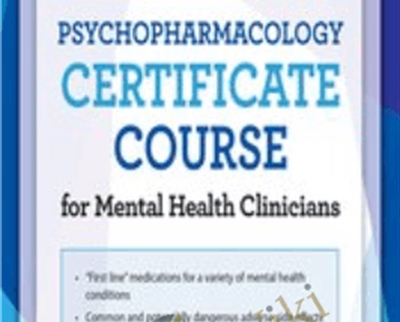

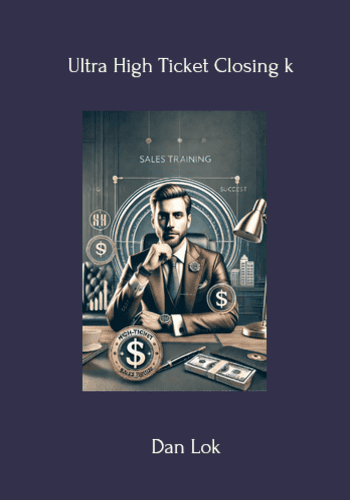
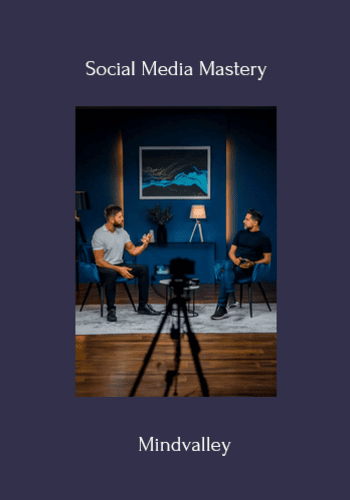
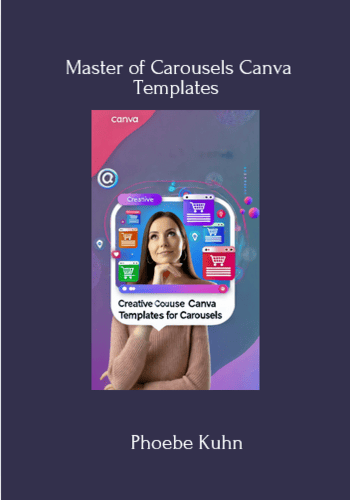
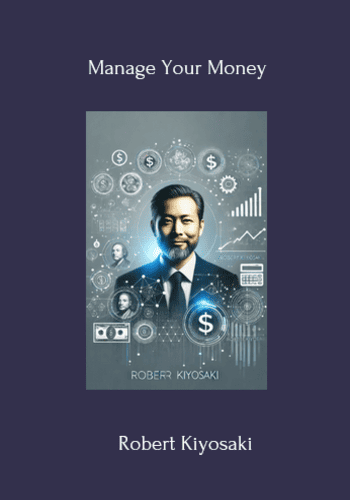
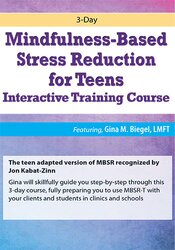
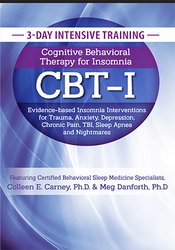
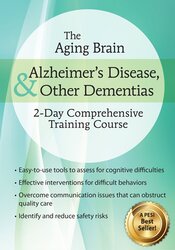
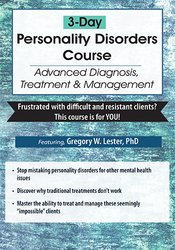
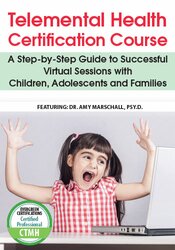
There are no reviews yet.